Granite bathroom countertops add elegance and durability to any bathroom space, but proper care is essential to maintain their beauty and longevity. Here are some comprehensive tips for caring for granite bathroom countertops:
Daily Cleaning: Wipe down the granite countertops daily with a soft cloth or sponge dampened with warm water and a mild, pH-neutral cleanser. This will help to remove surface dirt, dust, and debris without damaging the stone.
Avoid Harsh Cleaners: Avoid using harsh cleaners, acidic substances, or abrasive tools on granite countertops, as these can etch the surface, strip away the sealant, and dull the natural shine of the stone. Instead, stick to gentle, non-abrasive cleaners specifically formulated for use on natural stone.
Seal Regularly: Granite countertops should be sealed regularly to protect against moisture absorption, staining, and bacteria growth. Depending on the type of sealant used, resealing may be necessary every 1-3 years to maintain optimal protection.
Prevent Staining: Wipe up spills promptly to prevent staining on granite countertops, especially acidic substances like citrus juice, vinegar, or harsh cleaning products. Use coasters or trivets under toiletries, cosmetics, and hair products to protect the surface from spills and stains.

Avoid Heat Damage: While granite is heat-resistant, it’s still essential to use caution with hot objects like hair tools, curling irons, or heated styling devices. Always use heat-resistant mats or trivets under hot items to prevent thermal shock and potential damage to the granite surface.
Use Cutting Boards: Avoid cutting directly on granite countertops, as sharp knives and abrasive cutting boards can scratch or dull the surface. Always use cutting boards or mats to protect the granite from damage and preserve its smooth finish.
Clean Spills Promptly: If spills do occur, blot them up immediately with a clean, dry cloth to prevent the liquid from seeping into the pores of the granite and causing staining or discoloration. Avoid wiping spills, as this can spread the liquid and make the stain worse.
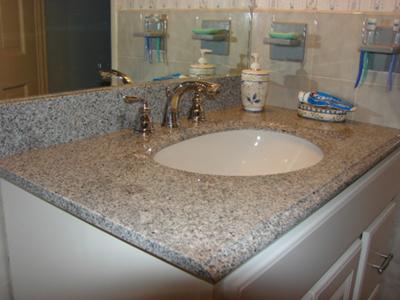
Routine Maintenance: Regularly inspect the granite countertops for signs of wear, damage, or deterioration, such as chips, cracks, or dull spots. Address any issues promptly to prevent further damage and ensure the longevity of the countertops.
Avoid Standing Water: Prevent water from pooling or standing on the granite countertops, especially around sinks and faucets. Excess moisture can seep into the stone and cause staining, discoloration, or mold and mildew growth. Wipe up any standing water immediately to keep the surface dry.
Gentle Scrubbing: For stubborn stains or dried-on residue, use a soft-bristled brush or non-abrasive scrubbing pad to gently scrub the affected area with warm water and a mild soap or stone cleaner. Avoid using abrasive scrubbers or scouring pads, as these can scratch the granite surface.
Prevent Hard Water Stains: Hard water can leave behind mineral deposits and stains on granite countertops over time. To prevent this, wipe down the countertops regularly with a mixture of equal parts water and white vinegar to remove mineral buildup and restore shine.
Avoid Sitting or Standing: Avoid sitting or standing on granite countertops, as excessive weight or pressure can cause cracks, chips, or structural damage to the stone. Use caution when leaning or placing heavy objects on the countertops to prevent accidents or damage.
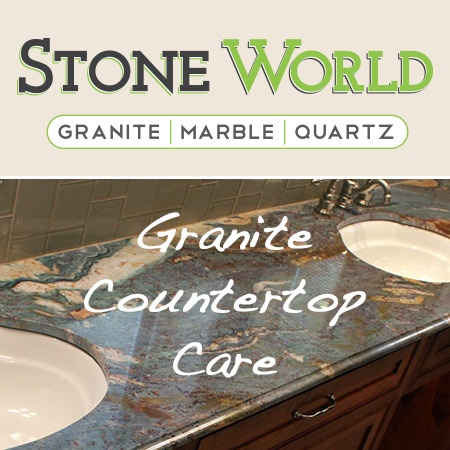
Test Cleaning Products: Before using any new cleaning products or methods on granite countertops, test them in an inconspicuous area to ensure compatibility and prevent damage to the stone. Some cleaners may contain harsh chemicals or acids that can etch or discolor granite surfaces.
Prevent Scratches: Place felt pads or rubber feet under small appliances, toiletries, and decorative items to prevent scratches and abrasions on the granite countertops. Avoid dragging heavy or sharp objects across the surface, as this can leave behind scratches and gouges.
Professional Maintenance: Consider hiring a professional stone restoration specialist to deep clean, polish, and seal granite countertops periodically. Professional maintenance can help to restore the natural beauty of the stone and prolong its lifespan.
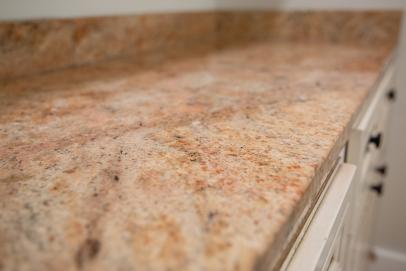
Common Mistakes to Avoid:
Using Harsh Cleaners: One common mistake is using harsh cleaners, acidic substances, or abrasive tools on granite countertops. These can etch the surface, strip away the sealant, and damage the natural stone over time. Stick to gentle, non-abrasive cleaners specifically formulated for use on granite.
Neglecting Sealing: Neglecting to seal granite countertops regularly can leave them vulnerable to moisture absorption, staining, and bacterial growth. Ensure that the countertops are sealed properly every 1-3 years to maintain optimal protection and performance.
Ignoring Spills: Ignoring spills or allowing water to sit on granite countertops can lead to staining, discoloration, and mold and mildew growth. Wipe up spills promptly with a clean, dry cloth to prevent moisture from seeping into the stone and causing damage.
Using Cutting Directly: Another mistake is cutting directly on granite countertops without using cutting boards or mats. Sharp knives and abrasive cutting boards can scratch or dull the surface of the granite, detracting from its natural beauty and smooth finish.
Skipping Routine Maintenance: Skipping routine maintenance or neglecting to address signs of wear or damage on granite countertops can lead to more extensive issues over time. Regularly inspect the countertops for chips, cracks, or dull spots, and address any issues promptly to prevent further damage.
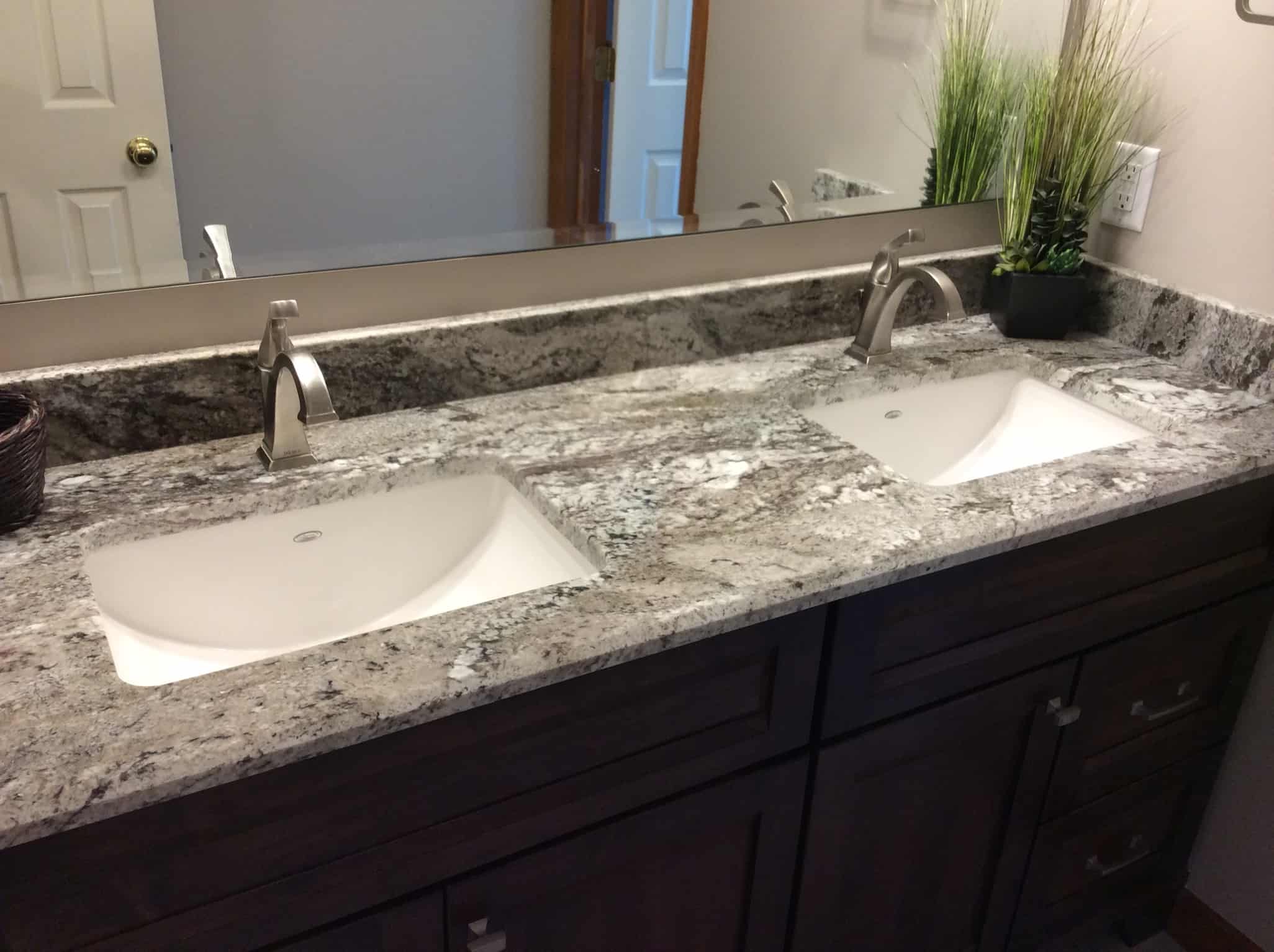
Can I use bleach or ammonia-based cleaners on granite countertops?
No, bleach and ammonia-based cleaners are too harsh for granite countertops and can cause etching, discoloration, and damage to the stone. Stick to gentle, pH-neutral cleaners specifically formulated for use on natural stone.
How often should I seal my granite bathroom countertops?
Granite bathroom countertops should be sealed every 1-3 years, depending on the type of sealant used and the level of use and exposure to moisture. Regular sealing helps to protect against staining, moisture absorption, and bacterial growth.
Can I use vinegar to clean granite countertops?
While vinegar is a natural cleaner, it is acidic and can damage the sealant on granite countertops over time. Use vinegar sparingly and dilute it with water to prevent etching and discoloration of the stone.
What should I do if my granite countertops become dull or lackluster?
If granite countertops become dull or lackluster over time, they may need to be professionally polished or refinished to restore their natural shine and luster. Consider hiring a professional stone restoration specialist to assess the condition of the countertops and recommend the appropriate treatment.
Are granite countertops resistant to scratches and heat damage?
Granite countertops are relatively resistant to scratches and heat damage, but they are not entirely scratch-proof or heat-proof. Use caution with sharp objects and hot items, and always use cutting boards, trivets, or hot pads to protect the surface of the granite from damage
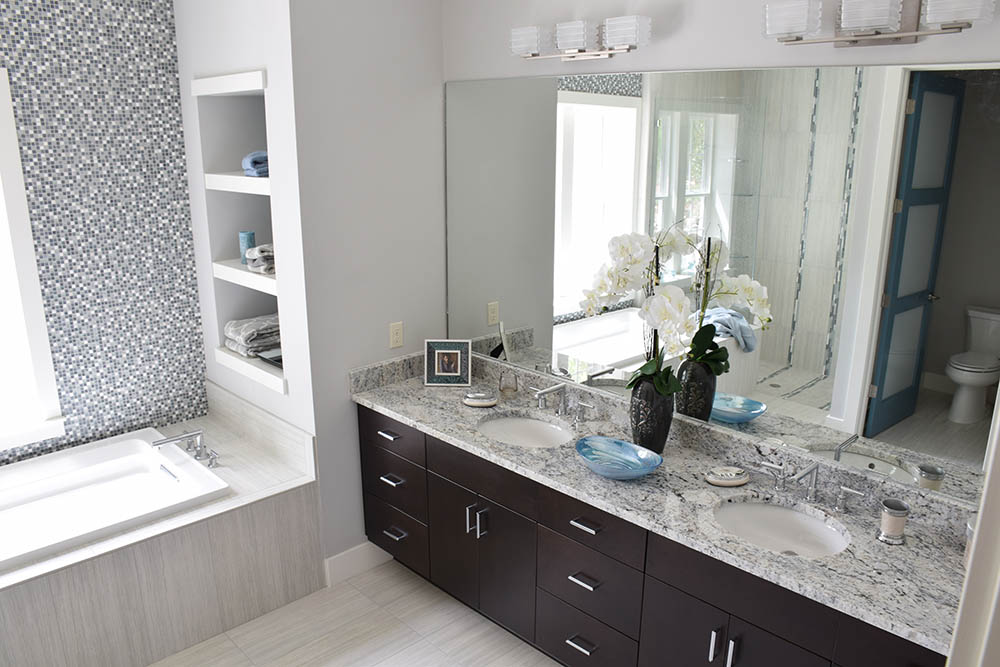
How to Clean Granite Countertops
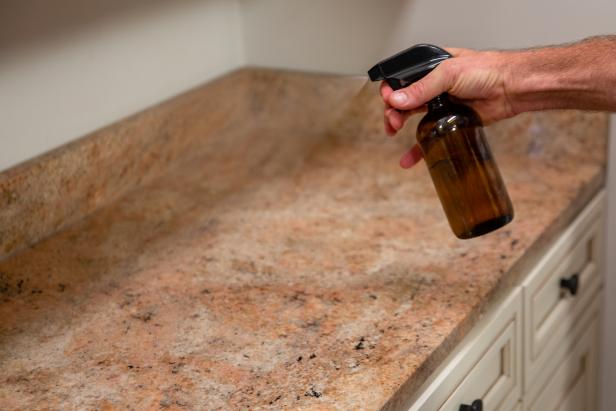
Granite in the Bathroom? Your Questions Answered
+(1).jpg)
Why choose a granite countertop for bathroom vanity?
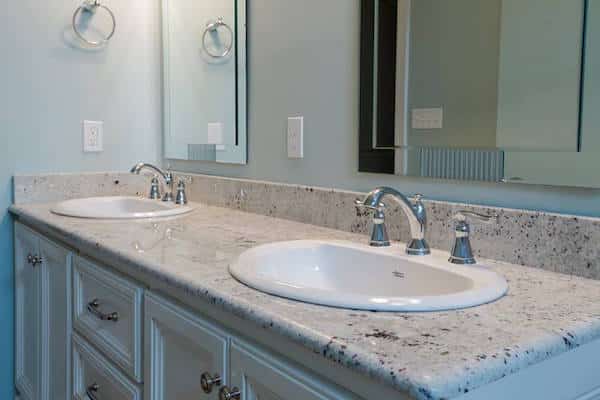
Related articles: